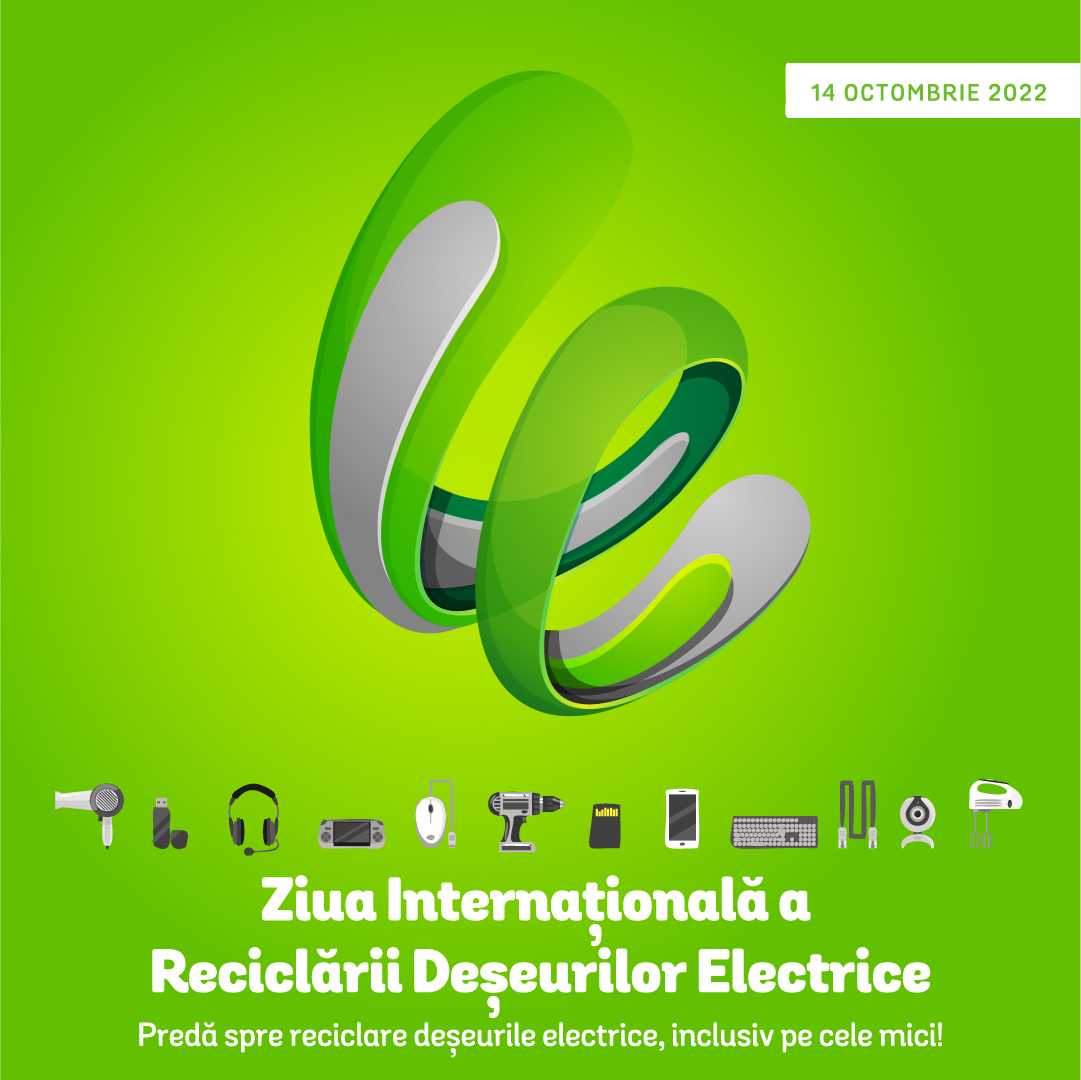 This year 24,5 million tons of small electrical waste will be generated globally, four times the weight of the Great Pyramid of Giza!
This year 24,5 million tons of small electrical waste will be generated globally, four times the weight of the Great Pyramid of Giza!
Brussels, 19 September 2022
On October 14, the International Day of Electronic Waste Recycling will be dedicated to the reuse, repair and recycling of small electronic waste, under the motto "Recycle electrical waste, including the small ones!".
Small end-of-life electrical and electronic equipment is a major challenge. According to the UN estimate, only in 2022 will they be generated globally 24,5 million tons of small electronic waste. This is four times the weight of the Great Pyramid of Giza.
Due to their small size, items such as mobile phones, electric toothbrushes, toasters and cameras are often disposed of incorrectly. They represent a significant proportion of those 8 percent of all e-waste that is thrown away with household waste, these being then disposed of by storage or incineration. This means that important raw materials cannot be extracted from their contents, which are thus wasted. In Europe, up to 1,4 kg of e-waste per capita is thrown away with household waste every year. In addition, small equipment can easily be stored in closets, garages, basements and attics and forgotten in no time. In an average household in Europe, up to 5 kg of electronic equipment per person is stored in this way.
"On the occasion of the fifth edition of International E-Waste Day, we want to remind people about the importance of every single piece of e-waste that is forgotten in the drawers of homes around the world” says Pascal Leroy – Director General of WEEE Forum, the organization behind the initiative. "This equipment provides many important resources that can be used in the production of new electronic or other equipment such as wind turbines, electric car batteries or solar panels – all crucial for the transition to green technologies and the creation of carbon-free societies. "
800 grams of silver, 150 grams of gold and 50 grams of palladium can be extracted from a ton of printed circuit boards, a component of many small electronic equipment (cameras, phones and tablets).
Efforts are underway worldwide to reverse this growing trend. The producer responsibility transfer organizations of the WEEE Forum that administer e-waste collection are constantly concerned with making the proper disposal of small e-waste a simple and convenient process for consumers. Placing collection containers in supermarkets, picking up small defective equipment when new ones are delivered are just some of the initiatives introduced to encourage the return of these products.
Last year more than 170 organizations from 50 countries around the world supported the International E-Waste Recycling Day. The WEEE Forum invites all organizations involved in the effective and responsible management of e-waste this year to plan activities to raise public awareness on October 14 and to join this joint effort by registering here.
Note:
More information: www.internationalwasteday.com
#ewasteday #ziuareciclariideurilorelectronice
About WEEE Forum
WEEE Forum is a global association, based in Brussels, for the transfer of responsibility of producers around the world. Together with the members of our association, we are at the forefront of transforming the principle of extended producer responsibility into an effective approach to e-waste management policy by combining knowledge on technical, business and operational aspects in the field of collection, logistics, depollution, processing , preparation for recycling and e-waste reporting. Our mission is to be the leading e-waste competence center in the world, excelling in implementing the principle of circularity. The forty-seven producer responsibility transfer organizations are based in Europe, Oceania, Africa, Asia, North and South America: Australia, Austria, Belgium, Canada, Colombia, Czech Republic, Cyprus, Denmark, Estonia, Italy , Greece, France, Iceland, India, Ireland, Lithuania, Luxembourg, Malta, Moldova, Netherlands, New Zealand, Nigeria, Norway, Poland, Portugal, Moldova, Romania, Slovakia, Slovenia, Spain, South Africa, Sweden, Switzerland and the United Kingdom.
Since the establishment of the producer responsibility transfer within the WEEE Forum, 28,5 million tons of WEEE/DEEE (waste electrical and electronic) have been collected, decontaminated and recycled or sent to be prepared for re-use. Of these, more than 3 million tons were collected in 2020.
More information is available by going to https://weee-forum.org/.
